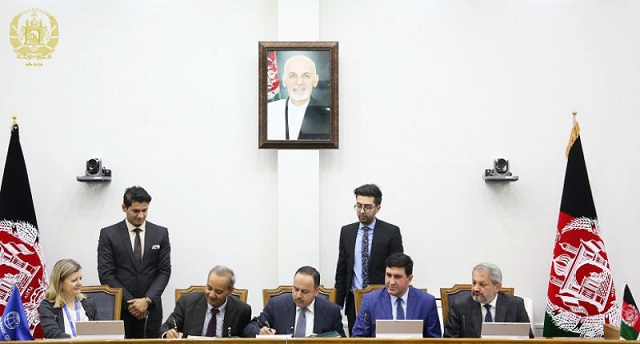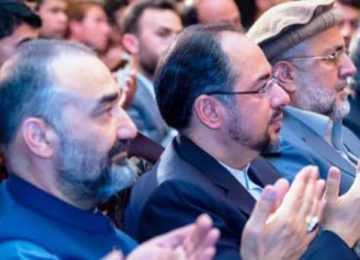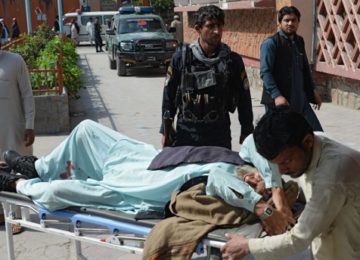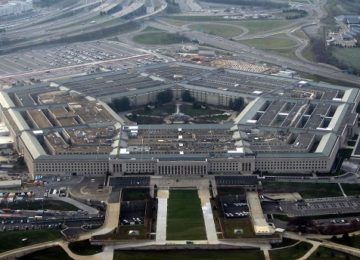H.E. Eklil Hakimi, Afghanistan’s Minister of Finance and Shubham Chaudhuri, World Bank Country Director for Afghanistan today signed a new $691 million grant package to help Afghanistan revitalize its economy and improve access to quality healthcare.
The new financing, which was approved by the World Bank Board of Executive Directors on March 28, 2018, will also help modernize state-owned banks, expand regional telecommunication connectivity, enhance e-government services, and boost private sector investments.
“Improving the quality of health services, strengthening the banking infrastructure and digitizing government systems will enhance our ability to deliver better and quality services to our people,” said H.E. Eklil Hakimi, Finance Minister of the Islamic Republic of Afghanistan. “This contribution demonstrates the continued commitment and support of international community helping the government of Afghanistan implement priority reforms for sustainable development.”
The financing package includes grants of $231 million provided by the International Development Association (IDA), the World Bank’s fund for the poorest countries, as well as $425 million from the Afghanistan Reconstruction Trust Fund (ARTF), which is managed by the World Bank, and $35 million from the Global Financing Facility (GFF), a multi-stakeholder partnership that brings governments and partners together around a country-led plan, prioritizing high-impact but underinvested areas of health. The GFF Trust Fund acts as a catalyst for financing, with countries using GFF Trust Fund grants to significantly increase their domestic resources alongside the World Bank’s IDA and IBRD financing, aligned external financing, and private sector resources.
“Afghanistan is implementing an ambitious reform program in a context of strong budget pressures imposed by low domestic revenue, though improving, massive security spending and enormous development needs,” said Shubham Chaudhuri, World Bank Country Director for Afghanistan. “In this challenging environment, we remain committed to helping the Government of Afghanistan further improve service delivery to the Afghan people. For example, the new health project will improve health and nutrition services for the entire population of the country in all 34 provinces.”
The total support of $691 million consists of three grants:
- $600 million to the Afghanistan Sehatmandi (Health) Project to increase the utilization and quality of health, nutrition, and family planning services across Afghanistan. IDA will provide $140 million, while ARTF is expected to provide an additional $425 million, with the GFF providing a $35 million grant. The project will be implemented by the Ministry of Public Health;
- $51 million from IDA to the Afghanistan Digital CASA 1 Project to increase access to affordable internet, attract private investors to the sector, and improve the Government’s capacity to deliver digital government services, by supporting a regionally integrated digital infrastructure and creating enabling environment. The Ministry of Communications and Information Technology will be the implementing agency; and
- $40 million from IDA to the Modernizing Afghan State Owned Banks Project that aims to strengthen corporate governance and enhance operational efficiency of state owned banks. The project, to be implemented by the Ministry of Finance, will contribute to the modernization, transparency, and efficiency of the three Afghan state-owned banks: New Kabul Bank, Bank Millie Afghan and Pashtany Bank, and will modernize their IT infrastructure and develop sustainable business models to support inclusive growth.
- H.E. Ferozuddin Feroz, Minister of Public Health, H.E. Shahzad Aryobee, Minister of Communications and Information Technology and Ethel Sennhauser, World Bank acting Vice President for South Asia attended the signing ceremony.
This report originally appeared on The World Bank’s Website on April 10, 2018. Original link.
Disclaimer: Views expressed on this blog are not necessarily endorsed or supported by the Center for Research and Security Studies, Islamabad.








